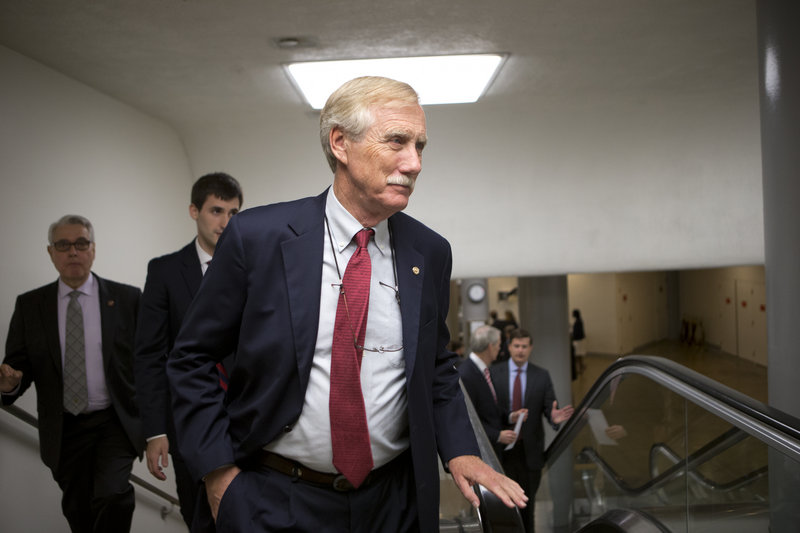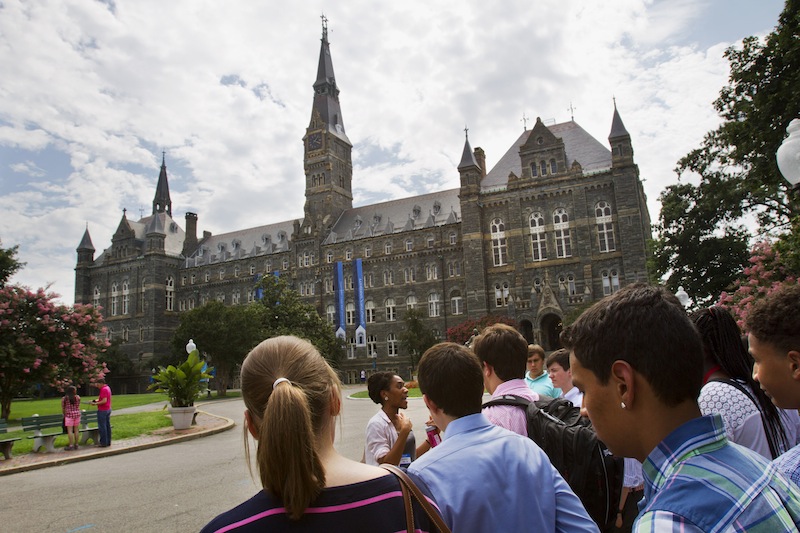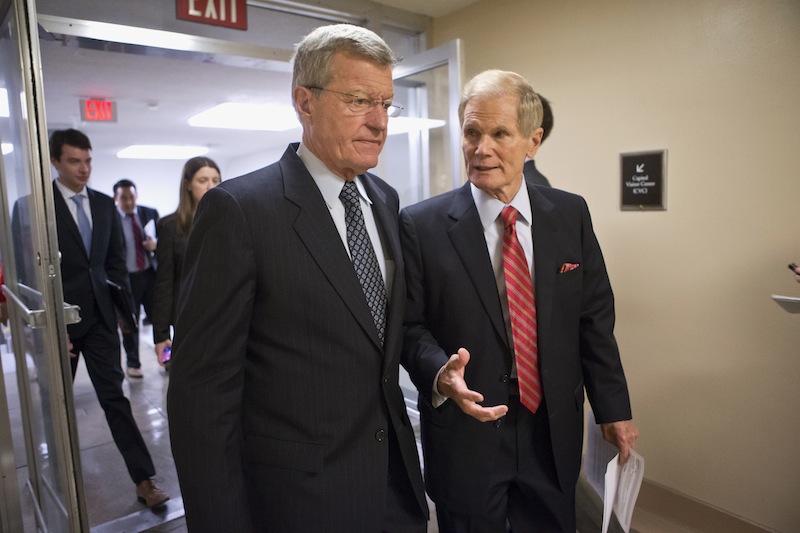WASHINGTON — Negotiations over student loan interest rates continued late Wednesday as a core group of senators – including independent Angus King of Maine – tried to win Democrats’ support for an overhaul of the federal lending program.
Earlier, Democrats fell far short of the 60 votes needed to advance a bill that would have reinstated a 3.4 percent interest rate for subsidized Stafford loans for another year while lawmakers worked on longer-term reforms.
Democrats and Republicans agree that the current rate of 6.8 percent, which took effect July 1, is too high. But they disagree on how best to lower the rate.
The rate for unsubsidized Stafford loans remains at 6.8 percent.
While the rate increase affects less than one-third of all student borrowers, it would make those borrowers pay, on average, an additional $2,600 in interest over the life of the loan, according to a recent congressional report.
The failure of the Democrats’ bill appears to open the door for a bipartisan measure to create a system in which interest rates for student loans are tied to market rates, not set by Congress.
The major sticking point for some Democrats is whether to include a cap to prevent rates that critics predicted could climb above 10 percent.
Democratic Sen. Joe Manchin of West Virginia and King, an independent who caucuses with the Democrats, were leading the effort to negotiate a compromise on a cap. The bill was negotiated with several Republicans, who were involved in discussions late Wednesday.
A Senate aide said the framework for a compromise might emerge as early as Thursday. But that means additional votes would be bumped to next week, adding pressure on Congress to address the issue before students get locked into the higher rates for loans for the coming school year.
“We are all working very hard and we are all working in a very constructive way,” Manchin told reporters Wednesday afternoon.
Student loan interest rates are the latest example of Congress’ inability to meet self-imposed deadlines. Lawmakers voted in late June 2012 to extend the 3.4 percent interest rate on subsidized Stafford loans for a year, then failed to agree on how to proceed before rates doubled last week.
Senators on both sides of the student loan issue expressed exasperation Wednesday at the Senate’s failure to address the issue.
“I think the American people are very tired of what happens here and the gamesmanship played in Washington,” said Sen. Kelly Ayotte, R-N.H.
Democrats who back the one-year extension have said Congress must take a broader look at the rising cost of college, in addition to student loan interest rates.
They say the coming reauthorization of a higher-education policy bill will allow that discussion.
But the authors of the bipartisan bill have said that another year is unnecessary, and that their plan would lower rates for all borrowers.
The bipartisan plan would tie student loan interest rates to 10-year Treasury borrowing rates, adding 1.85 percentage points for subsidized and unsubsidized Stafford undergraduate loans, 3.4 percentage points for graduate Stafford loans, and 4.4 points for PLUS loans for parents.
The rate would be locked in for the life of a particular loan, although rates for subsequent loans would likely vary.
Critics said that the bill, without a cap, could allow rates to climb too high for students.
Democrat Sen. Tom Harkin of Iowa, who chairs the Senate committee that oversees education, noted that the 10-year Treasury rates climbed above the current 8.25 percent cap five times in the 1990s.
King said Wednesday afternoon that he and Manchin were crunching numbers to come up with a workable compromise on a rate cap. The challenge, King said, is to make the program pay for itself without overcharging students.
Many Senate Republicans appear willing to consider the bipartisan plan. Sen. Susan Collins, R-Maine, added her support to the bill on Wednesday and voted with her Republican colleagues against the Democratic measure.
Any compromise that emerges will have to pass muster with Democrats, who control the majority of seats in the Senate.
Senate Majority Leader Harry Reid, D-Nev., pushed hard for a one-year extension.
“Democrats can’t support a plan that would be worse for students than doing nothing at all,” Reid said Tuesday.
More than 70 percent of graduates from Maine’s public and private colleges and universities in 2011 left college with student loan debt.
The average debt among Maine graduates that year was just above $26,046, slightly below the national average of $26,600, according to a report from the Project on Student Debt.
Kevin Miller can be contacted at 317-6256 or at:
kmiller@mainetoday.com
On Twitter: @KevinMillerDC
Send questions/comments to the editors.






Comments are no longer available on this story